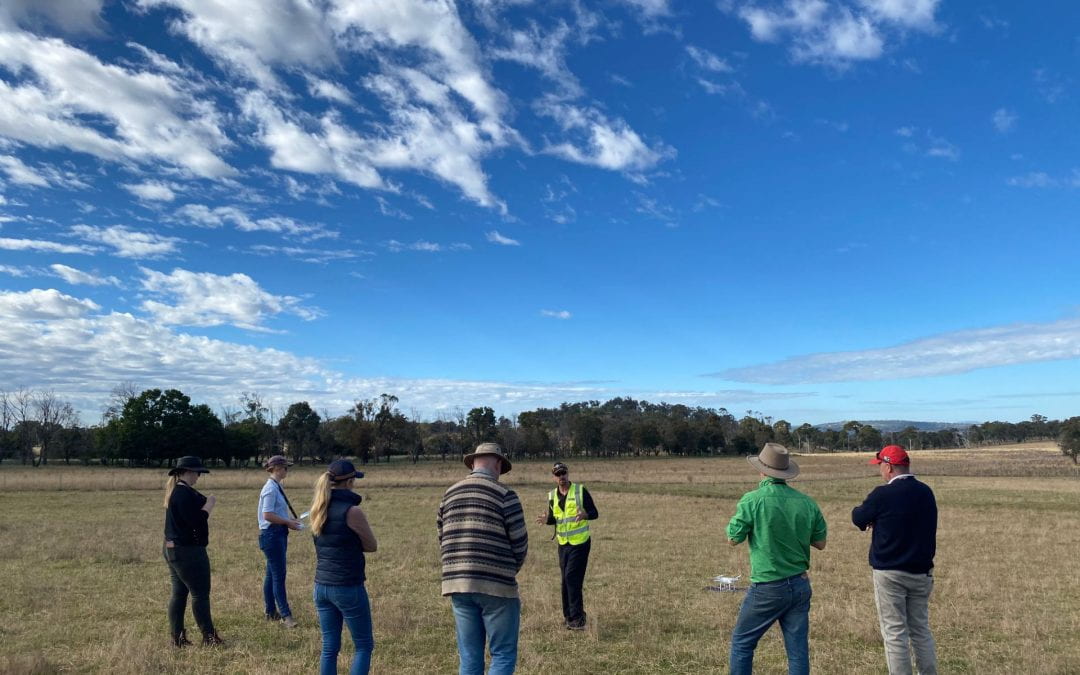The second round of practical drone training is underway this week where UNE staff will learn the skills necessary to obtain their Civil Aviation Safety Authority (CASA) Remotely Piloted Aircraft (RPA) licence.
Since April, some 29 UNE staff have undertaken study and practical training to sharpen up their drone flying skills in order to obtain their drone pilots licence.
Australian drone industry pioneer and UNE Chief Remote Pilot (CRP), John Fleming, conducted the training on site at the UNE SMART Farm and SportUNE in line with CASA guidelines applicable to remote pilot licences (RePL).
“A lot of the time we find people are doing the wrong thing when flying their drones because they just don’t know what the legal requirements are. While ignorance is bliss it is not an excuse,” John explained.
Once licensed staff will be able to operate their drones safely and within regulations to support research and other work activities.
The University has obtained its remote operators’ certification (ReOC), which allows staff to operate drones and the University’s Chief Remote Pilot to train staff to the Civil Aviation Safety Authority standards to obtain their remote pilots licence.
The benefits of licensing are far-reaching and applicable across many areas of the UNE community as evidenced by the eclectic mix of people John encountered at the training.
“The mix of people in the classroom was quite broad. They ranged from professional staff right through to academics, from people working in media to scientists conducting field studies on plant species, animals, or crops. They were a great group to work with; very enthusiastic and engaged.”
One of the many discussions John had with trainees was about the future of the drone industry and the relevance of drone training. He believes drones will only become further entwined with other industries in future.
“We had big discussions about where the drone industry was headed. It’s like a revolution. People think it’s an industry that stands alone, but I don’t think it is – it actually plugs into every other industry.”
“Agriculture, builders, architects, archaeology – basically anywhere where a human may have to work that is risky and it’s safer to use a machine instead. Drones can safely go where we may struggle. It really minimises risk.
“People think that drones are taking away their jobs. I don’t think that’s the case at all. Instead, it can enable people to do their job better. And, as we get better at it, we’ll realise that there are uses for drones that we haven’t discovered yet. The sky really is the limit.”
A hand full of staff are currently in the process of completing the practical flying component of their training and will be fully qualified by the end of June.
If you have a requirement to obtain your Remotely Piloted Aircraft Licence for work related activities here at UNE then contact Mark Creagan in Estate and Built Environment on mcreaga2@une.edu.au to obtain further information.

